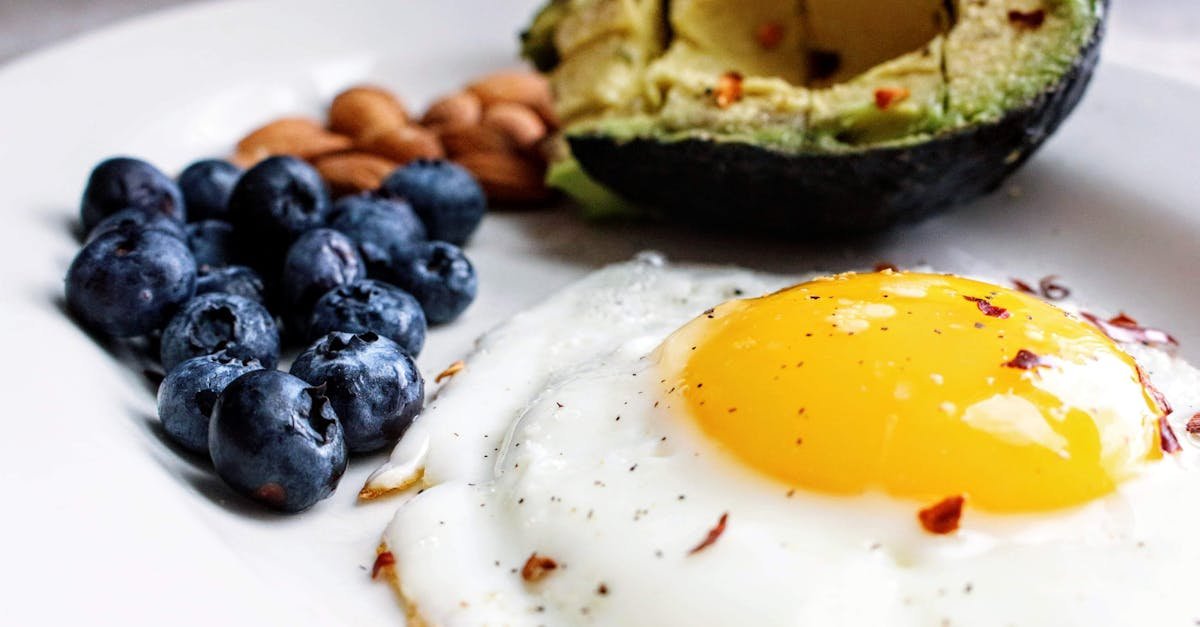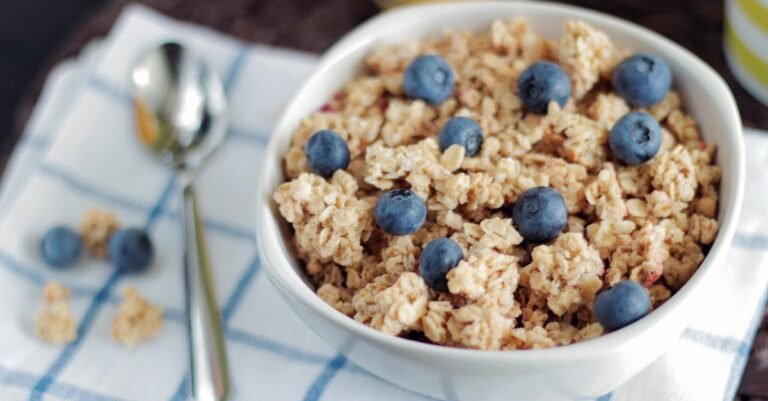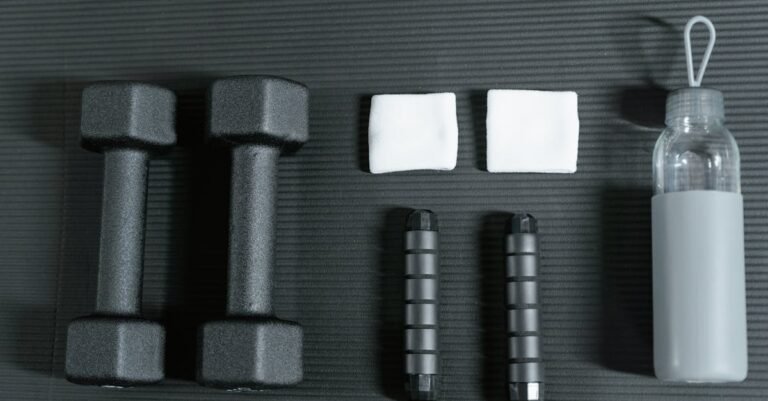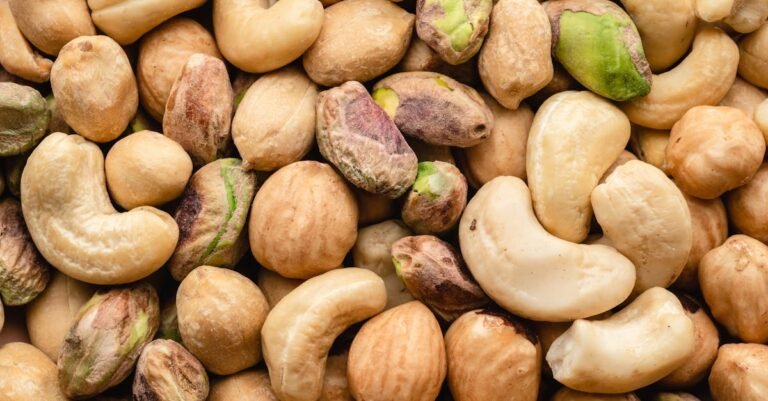Table of Contents
Vitamins And Minerals Crucial For Fitness
Why Micronutrients Matter More Than You Think for Fitness
Beyond Macros: The Unsung Heroes of Performance
Fueling the Engine: Energy Production and Micronutrients
The Powerhouse Vitamins for Fitness Enthusiasts
B Vitamins: The Energy Catalysts
B1 (Thiamine): Converting Carbs to Fuel
B6 (Pyridoxine): Protein Powerhouse
B12 (Cobalamin): Nerve Function and Red Blood Cells
Vitamin D: The Sunshine Vitamin’s Muscle Connection
Vitamin C: The Antioxidant Guardian and Repair Agent
Vitamin E: Protecting Cells from Exercise Stress
Essential Minerals: The Building Blocks and Regulators
Iron: Oxygen Transport Champion
Calcium: Bone Strength and Muscle Contraction
Magnesium: The Relaxation Mineral for Muscles
Zinc: Growth, Repair, and Immunity
Potassium & Sodium: The Electrolyte Duo for Hydration & Nerves
How to Ensure You’re Getting Enough
Food First: Prioritizing Nutrient Dense Choices
When Are Supplements Necessary?
Conclusion: Fueling Your Fitness Journey from Within
Frequently Asked Questions (FAQs)
FAQ 1: Can I get all necessary vitamins and minerals just from food?
FAQ 2: Do athletes need more vitamins and minerals than sedentary people?
FAQ 3: Can taking too many vitamins or minerals be harmful?
FAQ 4: What are the best food sources for fitness focused vitamins and minerals?
FAQ 5: Should I take a multivitamin for fitness?
Vitamins And Minerals Crucial For Fitness
Alright, let’s talk fitness. You’re hitting the gym, pushing your limits, maybe tracking your protein, carbs, and fats like a hawk. But are you paying enough attention to the little guys? I’m talking about vitamins and minerals – the micronutrients. Often overlooked, these tiny powerhouses are absolutely essential if you want to crush your fitness goals, recover faster, and feel your absolute best. Think of your body like a high performance race car. Protein, carbs, and fats are the fuel, sure. But vitamins and minerals? They’re the spark plugs, the engine oil, the cooling system – all the crucial components that make the engine run smoothly and efficiently. Without them, you’re just not going to perform optimally, no matter how much fuel you pour in.
Why Micronutrients Matter More Than You Think for Fitness
It’s easy to get caught up in the macronutrient game – grams of protein for muscle repair, carbs for energy, fats for hormones. And yes, those are incredibly important. But focusing solely on macros while ignoring micros is like building a house with a strong frame but forgetting the wiring and plumbing. It might stand up, but it won’t function properly. Vitamins and minerals are involved in virtually every process related to exercise performance and recovery.
Beyond Macros: The Unsung Heroes of Performance
Think about it. What good is all that protein if your body can’t effectively use it to rebuild muscle tissue? What use are those carbs if they can’t be efficiently converted into usable energy for your workout? That’s where vitamins and minerals step in. They act as coenzymes and cofactors, essentially the ‘keys’ that unlock the potential of the food you eat and the processes your body needs to perform. They help shuttle nutrients, facilitate muscle contractions, support bone health (crucial for impact activities!), protect your cells from damage caused by intense exercise, and even help regulate your heartbeat and fluid balance. They are the unsung heroes working tirelessly behind the scenes to make your fitness journey possible and successful.
Fueling the Engine: Energy Production and Micronutrients
Let’s zoom in on energy. Feeling sluggish during your workouts even though you ate beforehand? Your micronutrient status might be the culprit. The process of converting carbohydrates, fats, and even proteins into ATP (adenosine triphosphate), the body’s primary energy currency, is a complex chain reaction. And guess what facilitates nearly every step of that chain? Vitamins and minerals! Particularly the B vitamins act like critical workers on the energy production assembly line. Iron is needed to transport oxygen, which is vital for aerobic energy production. Magnesium is involved in hundreds of enzymatic reactions, including many related to energy metabolism. Without adequate levels of these micronutrients, your energy production pathways can become sluggish and inefficient, leaving you feeling fatigued and unable to perform at your peak. It’s like trying to run that race car with dirty spark plugs – you won’t get the power you need.
The Powerhouse Vitamins for Fitness Enthusiasts
Okay, so we know vitamins are important. But which ones should fitness folks really focus on? While a balanced intake of all essential vitamins is key, some play particularly starring roles in supporting an active lifestyle.
B Vitamins: The Energy Catalysts
The B vitamin family is like the energetic pit crew for your body. They aren’t a single entity but a group of distinct vitamins, many of which are absolutely critical for converting the food you eat into fuel your muscles can actually use. If you’re active, your energy demands are higher, meaning the demand for these conversion catalysts increases too.
B1 (Thiamine): Converting Carbs to Fuel
Think of Thiamine as the master key for unlocking energy from carbohydrates. It’s essential for an enzyme complex that breaks down glucose, your body’s preferred quick energy source, especially during moderate to high intensity exercise. Without enough B1, your ability to efficiently use carbs for fuel can be compromised, leading to quicker fatigue. You find it in whole grains, pork, nuts, and legumes.
B6 (Pyridoxine): Protein Powerhouse
If you’re focused on building or maintaining muscle, Vitamin B6 is your friend. It plays a crucial role in protein metabolism – breaking down protein for energy if needed, but more importantly, helping to build and repair muscle tissue after your workouts by facilitating amino acid reactions. It’s also involved in red blood cell formation, which impacts oxygen delivery. Find it in chicken, fish, potatoes, bananas, and chickpeas.
B12 (Cobalamin): Nerve Function and Red Blood Cells
Vitamin B12 is vital for maintaining healthy nerve cells and producing red blood cells. Healthy nerves are crucial for muscle contraction and coordination, while sufficient red blood cells ensure efficient oxygen transport to working muscles, delaying fatigue. B12 deficiency can lead to anemia and neurological issues, severely impacting athletic performance. It’s primarily found in animal products like meat, fish, poultry, eggs, and dairy. Vegans and vegetarians need to be particularly mindful and often require supplementation or fortified foods.
Vitamin D: The Sunshine Vitamin’s Muscle Connection
Often called the “sunshine vitamin” because our bodies can produce it from sun exposure, Vitamin D is increasingly recognized for its importance beyond bone health (though that’s crucial too!). Research shows Vitamin D receptors are present in muscle tissue, suggesting a direct role in muscle function, strength, and even growth. Low Vitamin D levels have been linked to decreased performance, increased injury risk, and muscle weakness. It also plays a role in calcium absorption and immune function. While sunshine is a source, factors like location, season, skin pigmentation, and sunscreen use can limit production. Food sources include fatty fish (salmon, mackerel), fortified milk and cereals, and egg yolks.
Vitamin C: The Antioxidant Guardian and Repair Agent
We all know Vitamin C for its immune boosting properties, but its role in fitness goes deeper. Intense exercise naturally creates oxidative stress – an increase in unstable molecules called free radicals that can damage cells. Vitamin C is a powerful antioxidant that helps neutralize these free radicals, potentially reducing muscle soreness and protecting tissues. Furthermore, it’s absolutely essential for collagen synthesis. Collagen is the main structural protein in connective tissues like tendons, ligaments, and cartilage, as well as skin and blood vessels. Getting enough Vitamin C supports the repair and maintenance of these tissues, which take a beating during exercise. Citrus fruits, berries, kiwi, bell peppers, and broccoli are fantastic sources.
Vitamin E: Protecting Cells from Exercise Stress
Another potent antioxidant, Vitamin E works synergistically with Vitamin C to protect cell membranes from oxidative damage caused by exercise. Think of it as reinforcing the walls of your cells against attack. By protecting muscle cell membranes, Vitamin E may help reduce exercise induced muscle damage and inflammation, aiding in recovery. It’s a fat soluble vitamin found primarily in nuts, seeds, vegetable oils (like sunflower and safflower oil), and leafy green vegetables.
Essential Minerals: The Building Blocks and Regulators
Now, let’s move on to the minerals – the inorganic elements that are just as vital as vitamins for keeping your fitness machine running optimally. They are involved in everything from building strong bones to transmitting nerve impulses and maintaining fluid balance.
Iron: Oxygen Transport Champion
Iron is a component of hemoglobin, the protein in red blood cells that grabs onto oxygen in your lungs and transports it to your muscles. Without enough iron, your body can’t make enough healthy red blood cells (a condition called iron deficiency anemia), leading to reduced oxygen carrying capacity. For anyone active, this means less oxygen reaching working muscles, resulting in fatigue, shortness of breath, and significantly impaired performance, especially during endurance activities. Female athletes, endurance runners, and vegetarians/vegans are often at higher risk for deficiency. Good sources include red meat, poultry, fish (heme iron, which is better absorbed), lentils, beans, spinach, and fortified cereals (non heme iron).
Calcium: Bone Strength and Muscle Contraction
Calcium is synonymous with bone health, and for good reason. It’s the primary mineral that gives bones their strength and rigidity, crucial for supporting your body during weight bearing exercise and preventing stress fractures. But calcium’s role doesn’t stop there. It’s also absolutely essential for muscle contraction. Nerve signals trigger the release of calcium within muscle cells, initiating the process that makes muscles shorten and produce force. Without adequate calcium, muscle function can be impaired. Dairy products are well known sources, but you can also get calcium from leafy greens (kale, collards), fortified plant milks and juices, tofu made with calcium sulfate, and almonds.
Magnesium: The Relaxation Mineral for Muscles
If calcium is needed for muscle contraction, magnesium is its partner, essential for muscle relaxation. It also plays a critical role in over 300 enzymatic reactions in the body, including those involved in energy production (ATP metabolism), protein synthesis, blood glucose control, and nerve function. Because it’s involved in energy production and muscle function, inadequate magnesium levels can lead to fatigue, muscle cramps, and weakness. Intense exercise can also deplete magnesium stores. Find it in leafy green vegetables (like spinach), nuts, seeds, whole grains, legumes, and dark chocolate (yes!).
Zinc: Growth, Repair, and Immunity
Zinc is another mineral workhorse involved in numerous bodily functions crucial for fitness. It plays a key role in cell growth and division, making it vital for repairing muscle tissue damaged during exercise. It’s also critical for a healthy immune system – something you definitely want firing on all cylinders when you’re training hard, as intense exercise can temporarily suppress immune function. Zinc contributes to energy metabolism and has antioxidant properties too. Good sources include oysters (a zinc powerhouse!), red meat, poultry, beans, nuts, whole grains, and fortified cereals.
Potassium & Sodium: The Electrolyte Duo for Hydration & Nerves
These two minerals are electrolytes, meaning they carry an electrical charge when dissolved in body fluids. They work together, often in opposition, to maintain proper fluid balance inside and outside cells, and they are absolutely critical for nerve impulse transmission and muscle contractions. You lose both sodium and potassium through sweat during exercise, especially during long or intense sessions in the heat. Depleting these electrolytes can lead to dehydration, muscle cramps, fatigue, and impaired performance. Sodium often gets a bad rap, but active individuals generally need more than sedentary people to replace sweat losses. Potassium is abundant in fruits and vegetables like bananas, oranges, potatoes, sweet potatoes, spinach, and beans. Sodium is found in table salt and many processed foods, but also naturally in foods like milk and beets. Paying attention to electrolyte intake, especially around workouts, is key for optimal hydration and function.
How to Ensure You’re Getting Enough
So, you’re convinced. These vitamins and minerals are non negotiable for fitness success. But how do you make sure you’re hitting your targets? It’s usually simpler than you might think.
Food First: Prioritizing Nutrient Dense Choices
The absolute best approach? Focus on a well rounded, nutrient dense diet. This means building your meals around whole, unprocessed foods. Think:
- Plenty of colorful fruits and vegetables: Aim for variety to get a wide spectrum of vitamins, minerals, and antioxidants.
- Whole grains: Brown rice, quinoa, oats, whole wheat bread provide B vitamins, magnesium, and fiber.
- Lean protein sources: Chicken, fish, turkey, lean beef, eggs, legumes, tofu pack protein along with iron, zinc, and B vitamins.
- Healthy fats: Avocados, nuts, seeds, olive oil offer Vitamin E and other essential nutrients.
- Dairy or fortified alternatives: Good sources of calcium and Vitamin D.
Eating a varied diet like this generally provides most active individuals with the micronutrients they need. Cooking methods matter too – steaming or stir frying vegetables preserves more nutrients than boiling. Prioritizing whole foods over processed options ensures you’re getting the nutrients along with fiber and other beneficial compounds, rather than just empty calories.
When Are Supplements Necessary?
While a food first approach is ideal, there are situations where supplements might be considered. These include:
- Diagnosed deficiencies: If blood tests reveal you’re low in a specific nutrient (like iron or Vitamin D), your doctor might recommend supplementation.
- Restrictive diets: Vegans (B12), vegetarians (potentially iron, zinc, B12), or those with allergies/intolerances might struggle to get certain nutrients from food alone.
- Specific populations: Female athletes (iron), older adults (B12, Vitamin D, calcium), or those living in areas with limited sun exposure (Vitamin D) might benefit.
- Very high training loads: Some elite athletes with extremely high energy expenditures and nutrient losses might need targeted supplementation under professional guidance.
However, it’s crucial not to self prescribe supplements. More isn’t always better, and excessive intake of certain vitamins and minerals can be toxic. Always consult with a doctor or a registered dietitian before starting any supplement regimen. They can assess your individual needs based on your diet, training, and health status, and recommend appropriate dosages if necessary. Don’t rely on supplements to make up for a poor diet – they are meant to supplement, not replace, healthy eating habits.
Conclusion: Fueling Your Fitness Journey from Within
So there you have it. While protein shakes and carb loading often steal the spotlight, the real MVPs working behind the scenes are often the vitamins and minerals. They are the intricate network of support systems that allow your body to generate energy, build and repair tissue, protect itself from stress, and ultimately, perform at its best. Neglecting your micronutrient intake is like trying to win a race with a flat tire – you simply won’t reach your full potential. By focusing on a diverse, nutrient rich diet packed with fruits, vegetables, whole grains, lean proteins, and healthy fats, you provide your body with the essential tools it needs to thrive. Listen to your body, fuel it wisely with both macros and micros, and you’ll be well on your way to crushing your fitness goals and feeling stronger and more energized than ever before.
Frequently Asked Questions (FAQs)
FAQ 1: Can I get all necessary vitamins and minerals just from food?
For most healthy, active individuals eating a varied and balanced diet rich in whole foods, yes, it’s absolutely possible to meet your vitamin and mineral needs through food alone. Nutrient dense foods provide the best and most bioavailable forms of these micronutrients. Supplements should generally be considered only if there’s a diagnosed deficiency, a highly restrictive diet, or specific circumstances advised by a healthcare professional.
FAQ 2: Do athletes need more vitamins and minerals than sedentary people?
Generally, yes. Increased physical activity raises the demand for energy production, increases muscle turnover and repair, leads to greater nutrient loss through sweat (especially electrolytes like sodium and potassium), and potentially increases oxidative stress. While the exact requirements vary based on the intensity, duration, and type of activity, athletes often have slightly higher needs for certain micronutrients like B vitamins, antioxidants (C, E), iron, calcium, magnesium, and zinc compared to their sedentary counterparts.
FAQ 3: Can taking too many vitamins or minerals be harmful?
Absolutely. While water soluble vitamins (like B vitamins and C) are less likely to cause toxicity because excess amounts are usually excreted in urine, fat soluble vitamins (A, D, E, K) can build up in the body to harmful levels. Likewise, excessive intake of minerals like iron or zinc can cause adverse effects and interfere with the absorption of other minerals. It’s crucial to stick to recommended daily allowances (RDAs) unless advised otherwise by a healthcare professional. Always err on the side of caution and prioritize getting nutrients from food.
FAQ 4: What are the best food sources for fitness focused vitamins and minerals?
Focus on variety! Include leafy greens (spinach, kale for calcium, magnesium, Vitamin K), colorful fruits and vegetables (berries, citrus for Vitamin C; bell peppers for Vitamin C), lean meats and poultry (iron, zinc, B vitamins), fish (especially fatty fish like salmon for Vitamin D and omega 3s), eggs (B12, choline), nuts and seeds (magnesium, zinc, Vitamin E), legumes (iron, magnesium, B vitamins), whole grains (B vitamins, magnesium), and dairy or fortified alternatives (calcium, Vitamin D).
FAQ 5: Should I take a multivitamin for fitness?
A multivitamin might seem like an easy insurance policy, but it’s often unnecessary if you eat a balanced diet. Many multivitamins contain a broad range of nutrients, but not always in the most needed amounts or bioavailable forms. They can’t compensate for poor eating habits. If you suspect deficiencies or have specific concerns (e.g., a restrictive diet), it’s far better to get tested and potentially use targeted supplements under the guidance of a doctor or registered dietitian rather than relying on a generic multivitamin.










